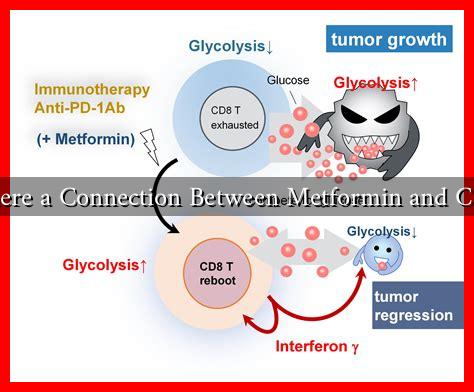-
Table of Contents
Is There a Connection Between Metformin and Cancer?
Metformin, a widely prescribed medication for type 2 diabetes, has garnered attention in recent years for its potential implications in cancer prevention and treatment. As research continues to evolve, many are left wondering: is there a connection between metformin and cancer? This article delves into the existing evidence, exploring the mechanisms, studies, and implications of metformin in the context of cancer.
Understanding Metformin
Metformin is an oral antihyperglycemic agent that primarily works by decreasing glucose production in the liver and improving insulin sensitivity. It is often the first-line treatment for managing type 2 diabetes. However, its role extends beyond glycemic control, leading researchers to investigate its potential anticancer properties.
The Mechanisms Behind Metformin’s Anticancer Effects
Several mechanisms have been proposed to explain how metformin may exert anticancer effects:
- AMPK Activation: Metformin activates AMP-activated protein kinase (AMPK), a cellular energy sensor that plays a crucial role in regulating metabolism. AMPK activation can inhibit cancer cell growth and proliferation.
- Reduction of Insulin Levels: By improving insulin sensitivity, metformin lowers circulating insulin levels, which may reduce the risk of insulin-related cancers.
- Inhibition of mTOR Pathway: Metformin has been shown to inhibit the mammalian target of rapamycin (mTOR) pathway, which is often overactive in cancer cells, promoting their growth and survival.
Research Findings: Metformin and Cancer
Numerous studies have explored the relationship between metformin use and cancer outcomes. Here are some key findings:
- Breast Cancer: A study published in the Journal of Clinical Oncology found that diabetic women with breast cancer who were treated with metformin had improved survival rates compared to those who did not use the drug.
- Colorectal Cancer: Research in the British Journal of Cancer indicated that metformin use was associated with a reduced risk of colorectal cancer in diabetic patients.
- Pancreatic Cancer: A meta-analysis published in the Journal of Cancer Research and Clinical Oncology suggested that metformin may improve overall survival in patients with pancreatic cancer.
Case Studies and Clinical Trials
Several clinical trials are currently underway to further investigate the potential of metformin in cancer treatment:
- METFORMIN Trial: This ongoing trial is examining the effects of metformin on patients with early-stage breast cancer, assessing its impact on tumor response and patient outcomes.
- Pancreatic Cancer Studies: Trials are exploring the combination of metformin with chemotherapy agents to enhance treatment efficacy in pancreatic cancer patients.
Potential Risks and Considerations
While the potential benefits of metformin in cancer prevention and treatment are promising, it is essential to consider potential risks:
- Lactic Acidosis: A rare but serious side effect of metformin is lactic acidosis, particularly in patients with renal impairment.
- Drug Interactions: Metformin may interact with other medications, necessitating careful management by healthcare providers.
Conclusion
The connection between metformin and cancer is an area of active research, with promising evidence suggesting that this diabetes medication may offer protective effects against certain types of cancer. While studies indicate improved outcomes in various cancers among metformin users, further research is needed to establish definitive causal relationships and understand the underlying mechanisms. As always, patients should consult their healthcare providers before making any changes to their medication regimens.
In summary, metformin’s potential role in cancer prevention and treatment is an exciting frontier in medical research, offering hope for improved outcomes in patients with diabetes and cancer alike. As we continue to unravel the complexities of this connection, metformin may emerge as a valuable tool in the fight against cancer.




